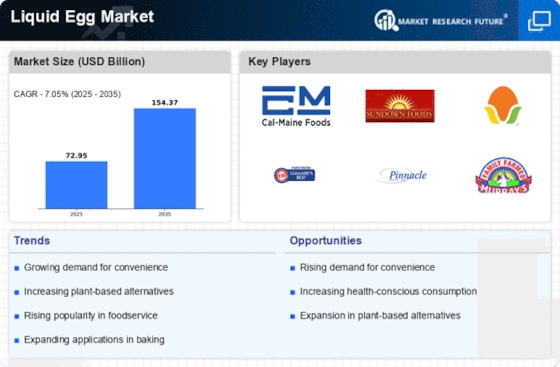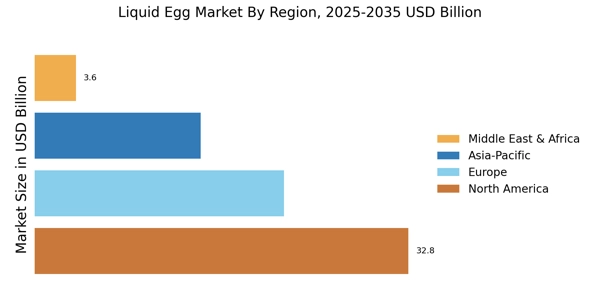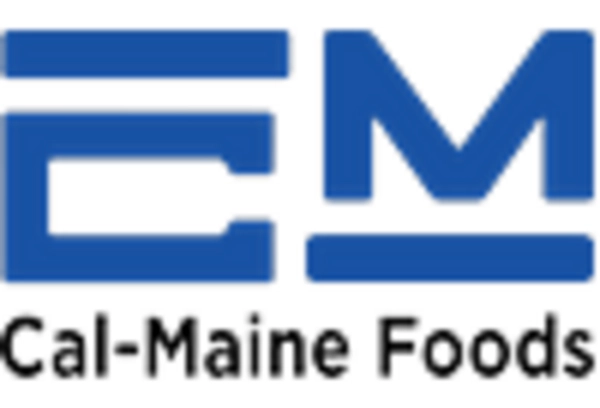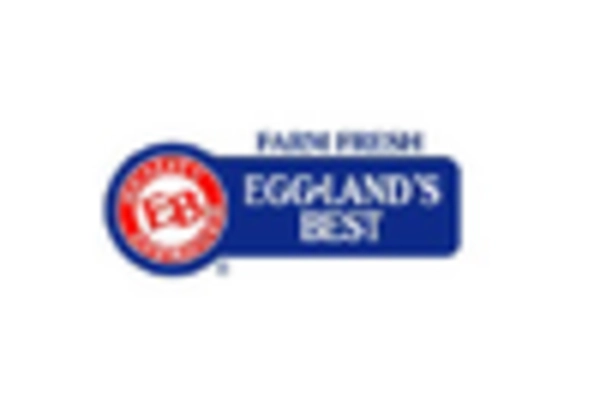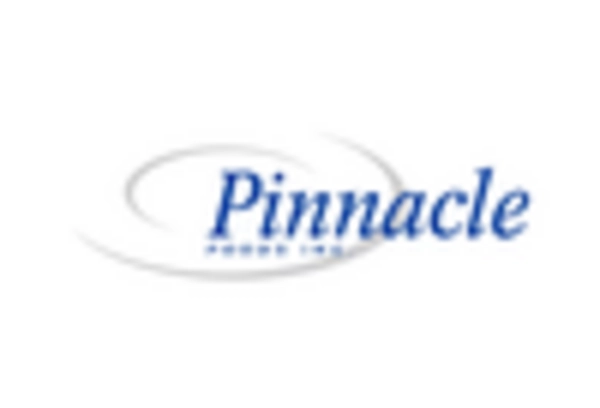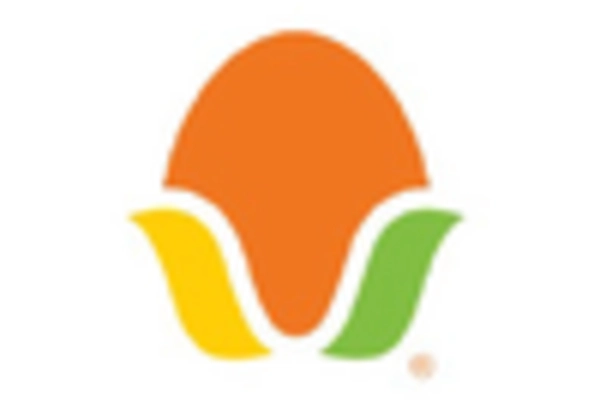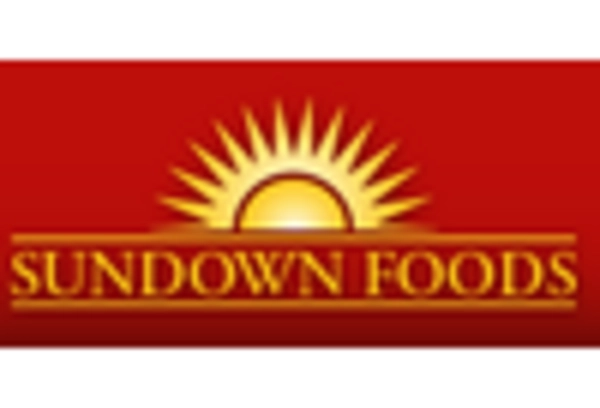Innovation in Product Offerings
Innovation plays a crucial role in shaping the Liquid Egg Market. Manufacturers are continuously developing new products, such as flavored liquid eggs and fortified options, to cater to diverse consumer preferences. This trend towards innovation not only attracts a broader customer base but also addresses specific dietary needs, such as low cholesterol or added vitamins. The introduction of these innovative products is likely to stimulate market growth, as consumers are increasingly drawn to unique offerings that align with their health goals. As a result, the liquid egg market may experience a notable uptick in sales, driven by these creative advancements.
Rising Awareness of Food Safety
The heightened awareness of food safety issues is a pivotal driver in the Liquid Egg Market. Consumers are becoming increasingly concerned about the risks associated with raw eggs, such as salmonella. Liquid eggs, often pasteurized, offer a safer alternative, thereby appealing to health-conscious consumers. This shift in consumer behavior is likely to drive demand for liquid eggs, as they provide a convenient and safe option for various culinary applications. Market data suggests that the emphasis on food safety is expected to grow, potentially leading to a sustained increase in liquid egg sales as consumers prioritize health and safety in their food choices.
Growth in Food Processing Sector
The expansion of the food processing sector significantly influences the Liquid Egg Market. As manufacturers increasingly seek efficient and cost-effective ingredients, liquid eggs present an attractive option due to their ease of use and longer shelf life compared to shell eggs. The food processing industry has seen a marked increase in the incorporation of liquid eggs in products such as baked goods, sauces, and ready-to-eat meals. Recent statistics suggest that the food processing sector is projected to grow at a rate of 4% annually, which could further bolster the demand for liquid eggs as a key ingredient, thereby enhancing their market presence.
Rising Demand for Protein Alternatives
The increasing consumer inclination towards protein-rich diets is a notable driver in the Liquid Egg Market. As health consciousness rises, many individuals are seeking alternatives to traditional protein sources. Liquid eggs, being a versatile and high-quality protein option, are gaining traction among health enthusiasts and fitness aficionados. According to recent data, the protein consumption trend has led to a surge in liquid egg sales, with projections indicating a potential growth rate of 5% annually. This shift towards protein alternatives is not merely a fad; it reflects a broader movement towards healthier eating habits, thereby solidifying the position of liquid eggs in the protein market.
Increased Adoption in Food Service Industry
The food service industry is increasingly adopting liquid eggs, which serves as a significant driver for the Liquid Egg Market. Restaurants, cafes, and catering services are recognizing the benefits of using liquid eggs, such as reduced preparation time and minimized waste. This trend is particularly evident in breakfast menus, where liquid eggs are favored for their consistency and ease of use. Recent data indicates that the food service sector is expanding, with a projected growth rate of 3% annually, which could lead to a corresponding increase in liquid egg consumption. This adoption not only enhances operational efficiency but also contributes to the overall growth of the liquid egg market.


